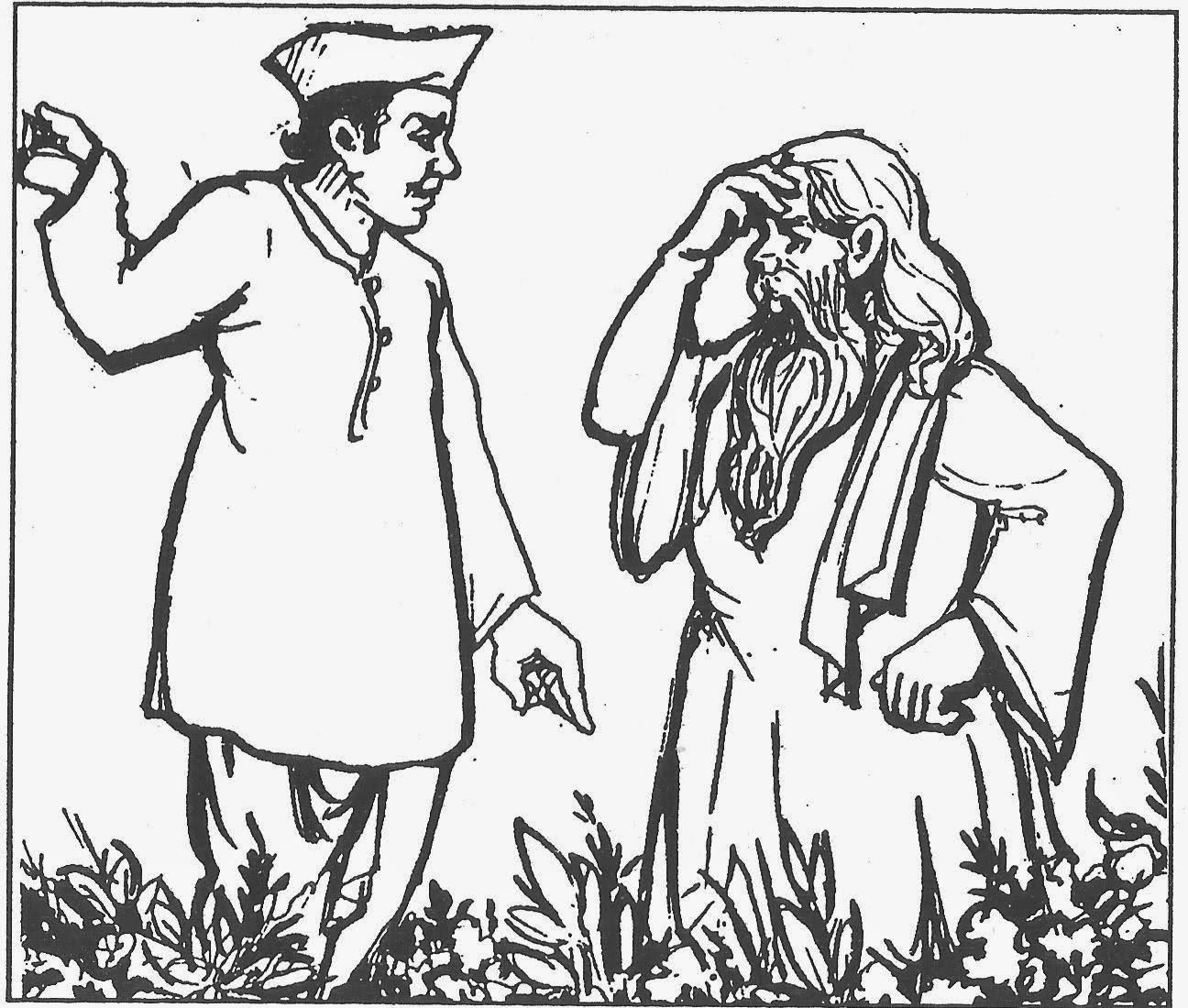When people just don’t get it …
ajñaḥ sukham ārādhyaḥ
sukhataram ārādhyate viśeṣajñaḥ
jñāna-lava-durvidagdhaṁ
brahmāpi taṁ naraṁ na rañjayati
ajñaḥ — the ignorant; sukham — is easily; ārādhyaḥ — convincible; sukhataram — even easier; ārādhyate — is to convince; viśeṣajñaḥ — the expert; brahmāpi — but even Lord Brahma; na rañjayati — cannot convince; tam — that; naram — person who is; jñāna-lava-durvidagdham — puffed up in the pride of a mere fraction of knowledge.
“The ignorant can be easily convinced [by explaining the truth]. The intelligent can be even more easily convinced [for they have the capacity to recognize the truth]. However, even Lord Brahma cannot convince half-baked people puffed up with their little knowledge.” (Nīti-śatakam of Bhartṛhari, Verse 3)
We sometimes need to confront people who hold views different from ours. If their view is incorrect, we may need to correct them. Sometimes however, they stay stuck to their opinions.
To have a better chance of changing their opinions, we need to understand how opinions are normally formed and reformed. Good opinions are usually formed based on information and reason. If we have the right information and follow the right reasoning, we have a high chance of coming to the right understanding.
Suppose we have formed an opinion in this way. If we encounter someone who has more information or better reasoning or both, then discussing with them may prompt us to change our understanding. Though we may initially feel bad that we were wrong, that feeling will soon be superseded by the joy of having gained a better understanding.
Conversely, if we hardly know anything about an issue, then we may either have no view or some casual view that we aren’t much attached to. If someone gives us a better understanding, we will happily accept it.
Some people, however, don’t form opinions based on proper information or proper reasoning – they have some partial information, do some half-baked reasoning and arrive at a stand that they then hold on to. In fact, they don’t hold opinions; their opinions hold them. Changing their understanding is well-neigh impossible. The Bhagavad-gita (18.22) indicates that such knowledge is knowledge in the mode of ignorance; it is fragmented knowledge that keeps one in ignorance, or even aggravates one’s ignorance. The philosopher-saint Srila Jiva Goswami, in his Bhakti-Sandarbha, uses the same word as in this Subhashita to refer to such people: jnava-lava durvidagdhah. It literally means those whose opinions are baked badly with a fraction of knowledge – their knowledge is minute; their obstinacy, mountainous.
Such opinionatedness doesn’t infect only some frustrating fanatics out there; it infects us too. We all have an ego that wants to prove that it is always right. Thankfully, we also have an intelligence. If we use our intelligence discerningly, we can detect when our ego is making us irrationally attached to our opinions.
Spiritual wisdom can sharpen our intelligence by changing our source of security. We are often attached to our opinions because our ego gets security in being right. But it is pseudo-security, coming as it does from the false notion that we are right when we aren’t. We can become free from the need for this pseudo-security when we get real security: security coming from love, especially spiritual love. The Gita explains that we are souls who are eternal parts of the whole, Krishna (15.07). He always loves us – his love won’t be lost to us even if we turn out to be wrong. When we are situated in the security of divine love, losing an argument no longer seems an unbearable loss.
Spiritual wisdom can do more than protect us from being irrationally attached to our own views; it can also equip us to better respond to people who are irrationally attached to theirs. Rather than futilely trying to make them see reason, we can turn prayerfully towards Krishna: “O Lord, what are you trying to teach me through this? How can I serve you now?” Such submissiveness makes us more receptive to his inner presence and voice. Connecting with him raises our intelligence above our ego – instead of trying to prove ourselves right, we try to seek the right way ahead. Our service attitude towards Krishna infuses humility into our interaction with them, thereby increasing the probability of their being more receptive. Amidst a confrontation, words coming from ego usually reach till the ego. In contrast, words coming from the heart frequently touch the heart.
What if we still don’t succeed in changing their opinion? We can let them be and move on with our life. Even through such an impasse, we can grow deeper in the most important right understanding that we are servants of Krishna, subordinate to his will. And growth in that understanding takes us closer to the only success that really matters – victory over the ignorance that keeps us bound in distressful material existence. When we appreciate that we are progressing towards that ultimate success, a stalemate in a confrontation in this temporary world pales into insignificance.
[I thank my friend and scholar, Hari Parshad Prabhu, for providing me with this verse]

